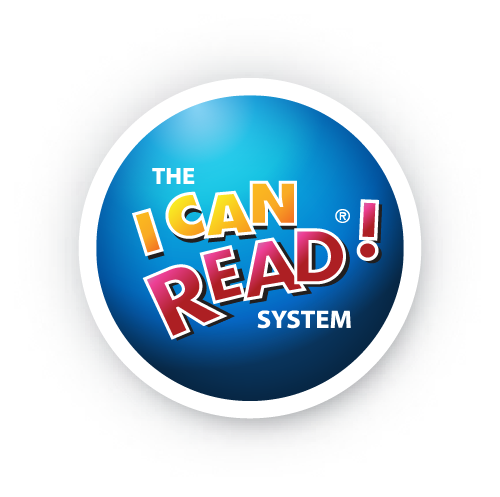I recently came across this article, which appeared in the Sydney Morning Herald on 5th March 2021, with the alarming title;
Kids in the crossfire: ‘It’s not just that they can’t read – it affects every minute of their day’.
You can read the full article here, but as a literacy and reading acquisition expert and educational psychologist, I wanted to offer my interpretation of the piece.
This article should not be taken too seriously, except that the subject of the article is Callum who is 17 years old and has reading difficulties. These difficulties are hampering his life. It is not uncommon for teachers to tell parents whose children are struggling, “They’ll catch up.” But they don’t catch up!
Our view is that if a child cannot read effortlessly by grade three, something is wrong. The article points out two home truths. By grade 3, Callum needed intensive intervention in all areas of literacy, which never happened, so he never received the intervention he needed to overcome his difficulties. Second, his mother spent what she could afford on private tutors but by then, the gap between Callum and his peers was too wide, which is code for he was not instructed properly.
In its simplistic fashion, the article identifies that Callum failed to receive ‘phonics training’ which would certainly been of benefit to him. And that would likely be correct, as phonics has only just been reintroduced to the curriculum this year for year 1 students.
But, as discussed in our previous article https://icanreadsystem.com/when-will-they-ever-learn/, while we are happy to see phonics return as a necessary adjunct in learning how to read, phonics, per se is not sufficient. Teaching children to read is a specialised skill, which unfortunately is not prioritised when training teachers. The renowned researcher Max Coltheart wrote a great article about ten years ago, where he pointed out that the solution was not at hand because there were few people in Australia who could train teachers how to instruct children in the reading acquisition process.
The article hones in on ‘phonics’. It may be that children are not taught enough about phonics, but it is also as likely that those who are given ‘phonics training’ are misdirected and remain teachers of sight-based memory driven methods.
The tragedy is, as the article points out, that one in five 14-year-olds cannot read well enough, according to 2019 NAPLAN results, a figure that’s barely improved over a decade of national testing. Unfortunately, this article seems unaware that ‘Reading Recovery’ despite many teachers endorsing it, has little research to support that it is effective. Connie Juel wrote a penetrative report on Reading Recovery showing that its efficacy depended on children receiving one-on-one instruction and, in any event, the learning effects failed to sustain the child after about six weeks.
Teaching children to read using a word’s meaning as their guide is not balanced literacy. It’s rubbish! But it’s true that ‘Balanced literacy has been favoured by most Australian primary schools and university education faculties for decades’, which may go some way to explaining why so many children have acquired reading difficulties. The article contains a plethora of half-truths and misinterpreted assertions, but is it well meaning?
The syllabic approach does not work, but the article cites a number of schools using it. Its references to synthetic phonics is on steadier ground. However, the 18th century did not favour whole language and if you fail to learn how to read at Oatley Public School you must have a learning difficulty. The deviations to Japanese kana systems are meaningless, though it is probably quite true to assert that, ‘A lot of the kids in year 3, who were being referred to learning support, were struggling with phonemic awareness.’ Many teachers mention phonemic awareness, having little idea how to apply it. However, from what we read, there does seems to be a genuine desire to fix up the mess and one section stands above all others: ‘Children who can decode and understand words will find reading easier, the research says. And the more they read, the more readily they will recognise words, allowing them to focus more on what the words mean. They can fall back on phonics to decode unfamiliar words, just as adults do.’
The politicisation of this debate has not helped. School principals and teachers, irrespective of their time in the system, are unlikely to know how to teach reading, although this lack of expertise does not stop many educators promoting what they consider to be a result of their lengthy time in the classroom.
This article appears to place ‘phonics training’ up against the ineffectiveness of alternative approaches. The research does support phonics instruction if it is taught properly as part of the pre-literacy acquisition process but most often, it is not taught correctly.
Perhaps surprisingly, the ‘back to phonics brigade ‘does help. Many children who fail to appreciate that the spoken language consists of words and words consist of phonemes catch on when this simple fact is pointed out to them. The division between opposing groups as to the best instructional approach seems based more on beliefs rather than evidence. If the evidence was read closely and applied, our failures to teach children how to read would decrease significantly. The debate is not truly between ‘phonics’ and ‘whole word-whole language’ approaches any more than there is a debate between smoking or vaping. Both are bad for you. One might be less bad, so to speak.
With our passion for children’s literacy success, we created I Can Read, building a unique system, that has now taught over 300,000 children to read, and has never had a failure.
If you have concerns about your child’s reading education and would like find out more, we are always happy to chat. Please feel free to contact us any time…
Tony Earnshaw PhD
I Can Read Co-founder and Educational and Cognitive Psychologist
